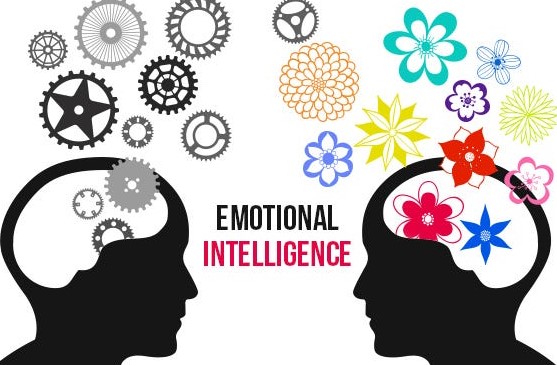Emometre 101: Everything You Need to Know About Emotional Intelligence
In this blog post, we will dive deep into the concept of emotional intelligence, exploring its significance in both personal and professional realms. We will also introduce you to a powerful tool called Emometre that can help measure and enhance your emotional functioning. So grab a cup of coffee or tea, sit back, and get ready for an enlightening journey into the fascinating world of emotional intelligence!
Understanding Emotional Intelligence
Emotional intelligence is a concept that has gained significant attention in recent years. It refers to the ability to recognize, understand, and manage our own emotions as well as those of others. But what does it really mean?
At its core, emotional intelligence involves being aware of our feelings and how they impact our thoughts and behaviors. It also includes having empathy for others and being able to effectively communicate with them.
Having emotional intelligence doesn’t mean we have to be overly sensitive or constantly analyzing our emotions. Rather, it’s about having a balanced approach where we can acknowledge and regulate our emotions without letting them control us.
When we understand emotional intelligence, we can navigate relationships more effectively, both personally and professionally. We become better at resolving conflicts, empathizing with others’ perspectives, and fostering positive connections.
Developing emotional intelligence takes time and effort. It requires self-reflection, self-awareness, active listening skills, and the ability to regulate our emotions in various situations.
By understanding emotional intelligence on a deeper level, we can enhance our interpersonal skills and create healthier relationships overall. So let’s dive into this fascinating topic further!
The Importance of Emotional Intelligence
Understanding the importance of emotional intelligence is crucial in today’s fast-paced and interconnected world. Emotional intelligence refers to the ability to recognize, understand, and manage our own emotions and the emotions of others. It plays a vital role in various aspects of life, including personal relationships, professional success, mental well-being, and overall happiness.
Emotional intelligence helps us navigate social interactions effectively. By being aware of our own emotions and understanding how they impact our behavior, we can communicate more empathetically and build stronger connections with others. This leads to healthier relationships both personally and professionally.
Emotional intelligence is essential for effective leadership. Leaders who possess high emotional intelligence are better equipped to inspire their teams, resolve conflicts constructively, make sound decisions under pressure, and create positive work environments. They have greater self-awareness and empathy towards their employees’ needs and concerns.
Moreover, emotional intelligence contributes significantly to mental well-being by helping individuals manage stress effectively. People with higher levels of emotional intelligence are better able to regulate their emotions during challenging situations. This enables them to cope with stressors more efficiently and maintain a positive mindset.
Lastly but not least important is that developing emotional intelligence can lead to greater overall happiness. When we understand our own emotions better and have control over them instead of being controlled by them; when we can also empathize with others’ feelings accurately it enhances our sense of fulfillment as well as enriches our interpersonal connections.
Measuring Emotional Intelligence
Understanding emotional intelligence is one thing, but being able to measure it is another. Measuring emotional intelligence allows us to assess our own emotional functioning and identify areas for improvement. It also enables organizations to evaluate the emotional intelligence of their employees and make informed decisions about hiring, promoting, or training individuals.
There are several methods used to measure emotional intelligence. One commonly used approach is self-report questionnaires that ask individuals to rate themselves on various aspects of emotional intelligence such as self-awareness, empathy, and social skills. These questionnaires provide a subjective assessment of an individual’s perceived level of emotional intelligence.
Another method is the use of performance-based assessments where individuals are asked to complete tasks that require them to demonstrate certain aspects of emotional intelligence. For example, they may be asked to analyze a scenario and choose the most appropriate response based on their understanding of emotions.
Additionally, some researchers have developed physiological measures like heart rate variability or skin conductance responses which can provide objective data about an individual’s physiological arousal in different situations related to emotions.
It’s important to note that measuring emotional intelligence is not without its challenges. Self-report questionnaires may be influenced by biases or inaccuracies in self-perception, while performance-based assessments may not capture an individual’s full range of capabilities or real-life behavior accurately.
Nonetheless, these measurement tools play a crucial role in helping us gain insights into our own emotions and interactions with others ultimately paving the way for personal growth and enhanced relationships both at work and in our personal lives.
Emometre: An Integrated Toolbox for Assessing Emotional Functioning
In the world of emotional intelligence, understanding and measuring one’s emotional functioning is crucial. This is where Emometre comes into play – an innovative and comprehensive toolbox designed to assess emotional intelligence in individuals. With its integrated approach, Emometre provides a holistic evaluation of emotional functioning, offering valuable insights that can lead to personal growth and development.
The Emometre toolbox consists of various assessment tools that cover different aspects of emotional intelligence. These tools delve into areas such as self-awareness, self-regulation, social skills, empathy, and motivation. By using a combination of questionnaires, scenarios, and interactive activities, Emometre captures a comprehensive picture of an individual’s emotional capabilities.
One key advantage of using Emometer is its ability to provide objective feedback on one’s strengths and areas for improvement in terms of emotional intelligence. The assessments are based on scientifically validated models of emotional intelligence and are designed to be reliable and accurate. This means that individuals can trust the results provided by Emometer when it comes to understanding their own emotions better.
Another noteworthy aspect about Emoterme is its versatility in application. It can be used across various settings such as schools, workplaces or even personal development programs. Whether you’re an educator aiming to enhance your students’ social-emotional learning or a manager seeking insights into your team members’ emotional competencies – Emoterme has got you covered!
Emoterme opens doors for enhancing emotional intelligence by providing actionable recommendations tailored to each individual’s needs based on their assessment results. Through targeted interventions like coaching sessions or training programs focused on specific skill areas identified through the assessments – individuals have the opportunity to grow their EQ levels over time.
Applications of Emometre
Emometre, the revolutionary tool for assessing emotional functioning, has a wide range of applications that can benefit individuals and organizations alike. Let’s explore some of the key ways in which Emometre can be utilized.
In the field of personal development, Emometre provides valuable insights into one’s own emotional intelligenc’e . By understanding our strengths and weaknesses in managing emotions, we can work towards self-improvement and better relationships with others. With Emometre, individuals can track their progress over time and make targeted efforts to enhance their emotional intelligence.
Emometre is immensely useful in recruitment processes. Employers can utilize this tool to assess candidates’ emotional competencies during job interviews or assessments. This allows companies to identify individuals who possess high levels of emotional intelligence and are likely to excel in roles that require strong interpersonal skills or leadership qualities.
Furthermore, Emometre is also beneficial for team building within organizations. By using this tool to evaluate the collective emotional intelligenc’e of a team, managers gain valuable insights on how team members interact with each other emotionally. This information enables them to address any issues or gaps within the team dynamics and foster a more positive and productive work environment.
Emometre finds its application in educational settings as well. Teachers and educators can use this tool to assess students’ emotional competencies as part of their overall development assessment process. It helps educators understand individual student needs better and tailor teaching strategies accordingly.
Emometre offers numerous applications across various domains such as personal growth, recruitment processes, team building initiatives within organizations, and educational settings. Its ability to measure emotional functioning makes it an invaluable asset for anyone seeking to enhance their own Emotional intelligenc’e quotient or improve organizational dynamics through effective people management strategies.
Enhancing Emotional Intelligence
Developing and improving our emotional intelligence is an ongoing process that can lead to numerous benefits in both our personal and professional lives. By enhancing our understanding of emotions, we can navigate relationships more effectively, make better decisions, and manage stress more efficiently.
One way to enhance emotional intelligence is through self-awareness. Taking the time to reflect on our own emotions and recognizing how they impact our thoughts and behavior allows us to gain a deeper understanding of ourselves. Journaling or practicing mindfulness techniques can help cultivate this self-awareness.
Another key aspect of enhancing emotional intelligence is developing empathy towards others. Empathy involves putting ourselves in someone else’s shoes, trying to understand their perspective, and acknowledging their feelings without judgment. By actively listening and showing compassion, we can build stronger connections with those around us.
Additionally, building effective communication skills plays a crucial role in enhancing emotional intelligenc’e . Clear and open communication allows for better understanding between individuals while minimizing misunderstandings or conflicts. Active listening, using non-verbal cues appropriately, and expressing oneself assertively are all vital components of strong interpersonal communication.
Managing emotions effectively is essential for enhancing emotional intelligenc’e . This includes recognizing triggers that might lead to negative emotions such as anger or frustration and finding healthy ways to cope with them. Techniques like deep breathing exercises or engaging in activities that bring joy or relaxation can aid in regulating emotions positively.
By continuously working on these aspects of emotional intelligenc’e – self-awareness, empathy towards others’ feelings, effective communication skills, and emotion regulation – we have the opportunity to not only improve ourselves but also create healthier relationships with those around us.
Conclusion
In today’s fast-paced and ever-changing world, emotional intelligenc’e is becoming increasingly important. It plays a vital role in our personal and professional lives, influencing how we navigate relationships, make decisions, and handle adversity. Understanding and harnessing our emotions can lead to improved well-being, stronger connections with others, and increased success.
Emotional intelligenc’e is not something that we are born with; it can be developed and enhanced over time. By recognizing the importance of emotional intelligenc’e and actively working on improving it, we can reap numerous benefits in both our personal and professional spheres.
One tool that has emerged as a valuable resource for assessing emotional functioning is Emometre. This integrated toolbox provides comprehensive measurements of emotional intelligenc’e across various domains. Through its innovative approach, Emometre enables individuals to gain insights into their emotional strengths and areas for improvement.
The applications of Emometre are vast. From educational institutions seeking to promote social-emotional learning among students to organizations aiming to enhance team dynamics and leadership effectiveness – Emometre offers valuable insights that can drive positive change at all levels.
To enhance your own emotional intelligenc’e , consider practicing self-awareness by reflecting on your emotions regularly. Pay attention to how you respond in different situations or interactions with others. Additionally, seek feedback from trusted individuals who can provide honest assessments of your behavior patterns.
Developing empathy is another crucial aspect of enhancing emotional intelligence. Try putting yourself in someone else’s shoes when they are experiencing certain emotions – this will help you understand their perspective better while fostering genuine connections.
Remember that developing emotional intelligence takes time and effort but the rewards are worth it. By continuing down this path of self-improvement, you’ll find yourself better equipped to navigate life’s challenges with grace while building strong relationships along the way.







